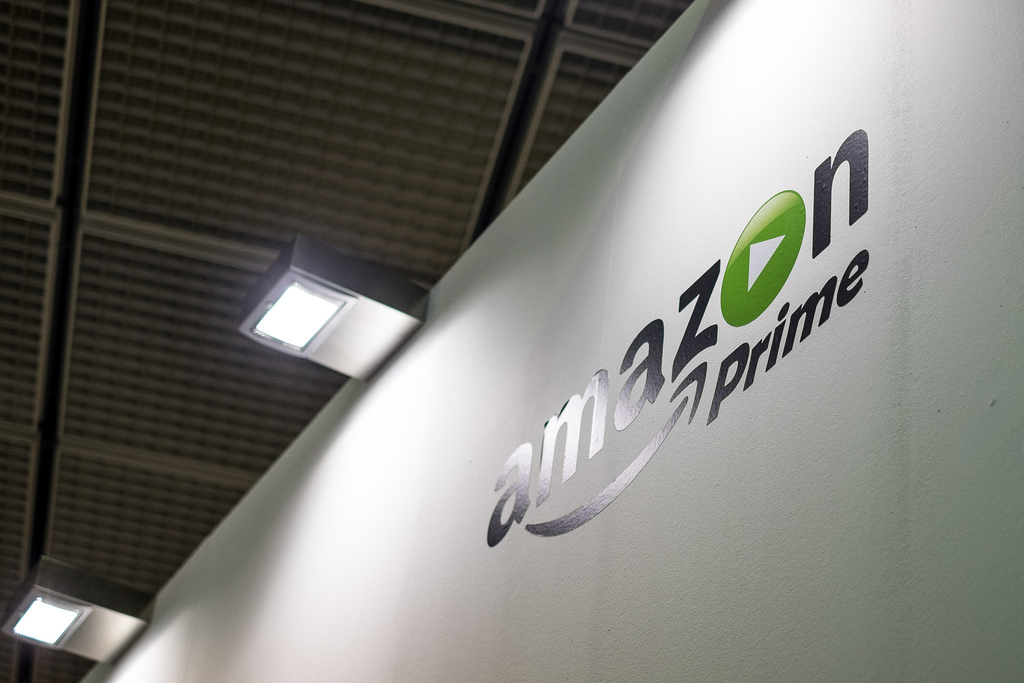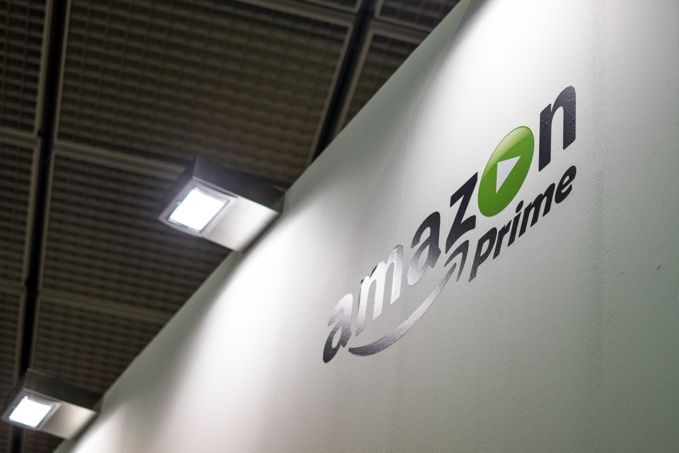Last week it became known that the company Amazon is expanding its business again. This time it is a partnership with Nike, in which the manufacturer of sports equipment will directly sell their products through Amazon. A few days earlier, Amazon surprised many observers by announcing purchase of Whole Foods Market, a supermarket chain of organic products, for $ 13.7 billion. In 2016, Whole Foods Market's revenue was $ 16 billion. The network manages more than 460 stores in the US, Canada and the UK.
After this deal, Amazon’s shares went up by almost 5%, bringing its market capitalization to $ 483 billion. Many experts began to talk about emergence of a new "universal soldier" in the high-tech market. The New York Times columnist Farhad Manjoo even included Amazon in one of the "frightening five" corporations - Google, Apple, Facebook and Microsoft, meaning that Amazon equaled to these companies in terms of business diversification and went beyond retail sales. For example, a subsidiary of Amazon Web Services is developing and manufacturing cloud services, and Amazon is also actively conducting research in the field of artificial intelligence. In addition, the Internet retailer actively invests in the media industry - Amazon Studios produces and distributes video content (TV shows, films). Besides, the founder and head of Amazon Jeffrey Bezos owns one of the largest newspapers in the US - the Washington Post - and aerospace company Blue Origin, which managed to produce several successful rocket launches. It is expected that Blue Origin will be able to compete with players in the market of private space services – Elon Musk (SpaceX) and Richard Branson (Virgin Galactic).
Purchase of the Whole Foods network seriously disturbed investors in other retailers selling and producing food products - once the deal was announced, Kellogg's prices fell by 1.7%, Kraft Heinz by 2.4%, Wal-Mart by 4, 7%, Target - by 5.1%. "From this transaction, I would be uncomfortable if I owned a company for the production and sale of packaged food", - said in an interview with Fortune magazine head of the software company for the food market Farmigo Benzi Ronen. Business Insider reviewer Steve Kovach even asked himself how frightening the influence and coverage of Amazon could become.
However, investors are not afraid of this - since the beginning of the year, shares of Amazon have risen in price by 33%. This situation is of particular interest, given the problems that traditional retailers are currently facing. According to S&P Global Market Intelligence, this year the US retail market recorded a record number of bankruptcies. In the first four months of this year, traditional retail chains initiated 14 bankruptcy procedures, while for the whole of last year only 18 bankruptcies were announced. Based on these data, experts estimate Amazon's active expansion into the traditional retail market as potentially useful. "This can change the entire dynamics of the industry," John Brick, an analyst at Morningstar Broker, told The Christian Science Monitor. "The online food trade market is now growing by about 20% per year." Observers believe that Amazon, which has proven itself in the Internet market, will shake up the stagnant retail market, responding to the growing demand of consumers to buy goods via the Internet. In recent years, traditional retail stores have been finding it harder to compete with online stores, which was particularly evident in last year's season of pre-holiday sales. On Thanksgiving Day, American consumers clearly demonstrated their preference for making purchases on the Internet, rather than shopping offline. Online sales on that day exceeded $ 1.9 billion, which is 11.5% higher than in 2015. Meanwhile, the usual retail stores also show a desire to fight for customers: if earlier they were closed for Thanksgiving, now they are trying to work all day, and also offer high discounts.
So-called millenials, born in the 1980s and 1990s, are showing increased interest in Internet trading. The Food Marketing Institute says they are increasingly choosing to buy online, including food. Last year such purchases were made by 28% of the polled consumers of this generation, this year - 43%.
The first signs that Amazon's activity in the retail market can stimulate competition are already appearing: on the day of the deal with Whole Foods, the world's largest traditional retailer Wal-Mart announced the purchase of a large online retailer of men's clothing, Bonobos, for $ 300 million. Thus, the range of products sold through the Internet was brought to 50 million titles, which is five times more than just a year ago. This year, Wal-Mart also bought online retailers such as ModCloth (women's clothing), Moosejaw (clothes and equipment for outdoor activities) and Shoebuy (shoes). "These deals will cause awakening of other major players who will be forced to seek targets for absorption in the pursuit of a young audience. If you cannot deal with competitors, join them by buying them ", - says Mortimer Singer of Traub consulting company.
source: forbes.com, csmonitor.com, fortune.com, nytimes.com
After this deal, Amazon’s shares went up by almost 5%, bringing its market capitalization to $ 483 billion. Many experts began to talk about emergence of a new "universal soldier" in the high-tech market. The New York Times columnist Farhad Manjoo even included Amazon in one of the "frightening five" corporations - Google, Apple, Facebook and Microsoft, meaning that Amazon equaled to these companies in terms of business diversification and went beyond retail sales. For example, a subsidiary of Amazon Web Services is developing and manufacturing cloud services, and Amazon is also actively conducting research in the field of artificial intelligence. In addition, the Internet retailer actively invests in the media industry - Amazon Studios produces and distributes video content (TV shows, films). Besides, the founder and head of Amazon Jeffrey Bezos owns one of the largest newspapers in the US - the Washington Post - and aerospace company Blue Origin, which managed to produce several successful rocket launches. It is expected that Blue Origin will be able to compete with players in the market of private space services – Elon Musk (SpaceX) and Richard Branson (Virgin Galactic).
Purchase of the Whole Foods network seriously disturbed investors in other retailers selling and producing food products - once the deal was announced, Kellogg's prices fell by 1.7%, Kraft Heinz by 2.4%, Wal-Mart by 4, 7%, Target - by 5.1%. "From this transaction, I would be uncomfortable if I owned a company for the production and sale of packaged food", - said in an interview with Fortune magazine head of the software company for the food market Farmigo Benzi Ronen. Business Insider reviewer Steve Kovach even asked himself how frightening the influence and coverage of Amazon could become.
However, investors are not afraid of this - since the beginning of the year, shares of Amazon have risen in price by 33%. This situation is of particular interest, given the problems that traditional retailers are currently facing. According to S&P Global Market Intelligence, this year the US retail market recorded a record number of bankruptcies. In the first four months of this year, traditional retail chains initiated 14 bankruptcy procedures, while for the whole of last year only 18 bankruptcies were announced. Based on these data, experts estimate Amazon's active expansion into the traditional retail market as potentially useful. "This can change the entire dynamics of the industry," John Brick, an analyst at Morningstar Broker, told The Christian Science Monitor. "The online food trade market is now growing by about 20% per year." Observers believe that Amazon, which has proven itself in the Internet market, will shake up the stagnant retail market, responding to the growing demand of consumers to buy goods via the Internet. In recent years, traditional retail stores have been finding it harder to compete with online stores, which was particularly evident in last year's season of pre-holiday sales. On Thanksgiving Day, American consumers clearly demonstrated their preference for making purchases on the Internet, rather than shopping offline. Online sales on that day exceeded $ 1.9 billion, which is 11.5% higher than in 2015. Meanwhile, the usual retail stores also show a desire to fight for customers: if earlier they were closed for Thanksgiving, now they are trying to work all day, and also offer high discounts.
So-called millenials, born in the 1980s and 1990s, are showing increased interest in Internet trading. The Food Marketing Institute says they are increasingly choosing to buy online, including food. Last year such purchases were made by 28% of the polled consumers of this generation, this year - 43%.
The first signs that Amazon's activity in the retail market can stimulate competition are already appearing: on the day of the deal with Whole Foods, the world's largest traditional retailer Wal-Mart announced the purchase of a large online retailer of men's clothing, Bonobos, for $ 300 million. Thus, the range of products sold through the Internet was brought to 50 million titles, which is five times more than just a year ago. This year, Wal-Mart also bought online retailers such as ModCloth (women's clothing), Moosejaw (clothes and equipment for outdoor activities) and Shoebuy (shoes). "These deals will cause awakening of other major players who will be forced to seek targets for absorption in the pursuit of a young audience. If you cannot deal with competitors, join them by buying them ", - says Mortimer Singer of Traub consulting company.
source: forbes.com, csmonitor.com, fortune.com, nytimes.com



















